Jocelyn was in the room when they shot her grandfather, Marcelo Garganta, in cold blood.
In the Navotas slums, where the Garganta family live, people mill around at every hour of the day. People also work at night, so doors are always open. It was 1am when masked men in plainclothes barged into Marcelo’s house.
Nine-year-old Jocelyn Garganta was asleep on the couch inside the family’s small store. Jocelyn’s grandmother woke up Marcelo, who was sleeping with only his briefs on. The electric fan was whizzing. It was a hot, sticky evening. The men told Marcelo they were there to take him to police headquarters. "Hold on," he told them, "Let me put on some clothes."
The men’s masks had skulls printed on them. They let Marcelo wear his shorts. Then they walked into the room and started shooting. They shot his head, his chest, and various parts of his body.
Jocelyn was woken up by the sound of the bullets and the spatter of blood on her face. When she opened her eyes, her grandfather lay in front of her, in a pool of his own blood. Her grandmother was hysterical. The men told Jocelyn and her grandmother to leave, but her grandmother held Marcelo in her arms, tugging at him, convinced he could still be saved if he got to a hospital. Jocelyn ran onto the streets, terrified.
Outside, Jocelyn’s aunt saw that policemen had come to round up men from the neighborhood. It was a drug bust, they said. They forced the men into cars, telling them they would be taken to police headquarters to check if they had pending cases or arrest warrants. Among those taken were Marcelo’s two teenage sons. One of his sons, 19-year-old Jomar, a criminology student, was in tears when he spoke to a television reporter. "They shot my father five times. They had no plans to spare him," he cried. "What they did was wrong. I know what the police are supposed to do in these cases… I was taught that in school."
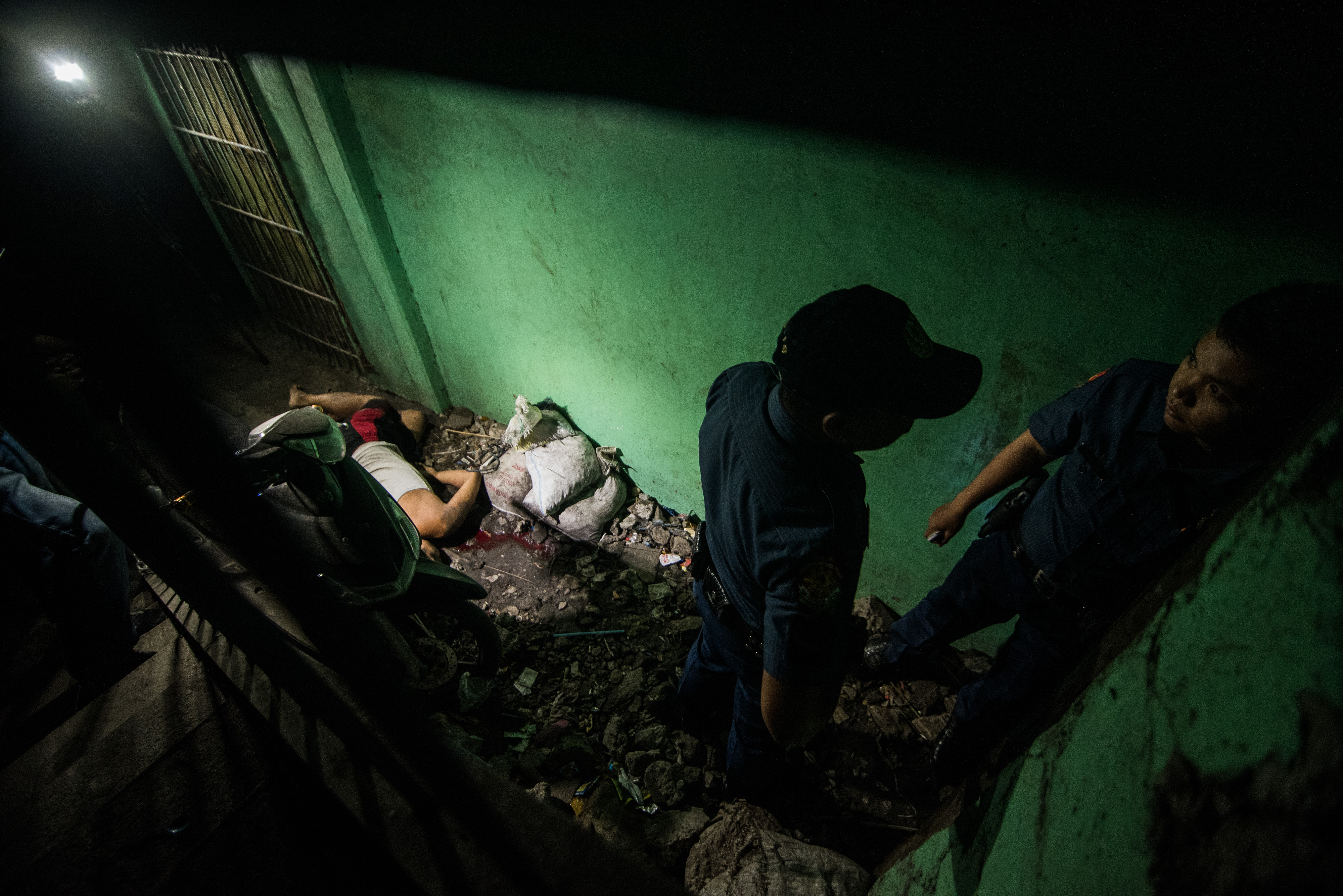
Jocelyn’s father and Marcelo’s eldest son, 27-year-old Joseph, was also outside. None of the family members were allowed to approach Marcelo’s corpse until Scene of the Crime Operatives (SOCO) arrived. "That’s my Papa!" he yelled at the cops. "That’s my Papa!"
They took Joseph away, too. But instead of riding in the car with the rest of the men who had been rounded up, they put him on a separate motorcycle. He was sandwiched by two men in civilian clothing. They said they would be taking him to the headquarters, too.
It was July 21, 2016, the early days of the drug war, just three weeks since Philippine President Rodrigo Duterte was inaugurated. Over the course of two days, seven drug suspects died across the city, including Marcelo. About 20 men were taken to the police headquarters in Navotas that evening for investigation, in what became routine practice by cops in anti-drug operations across the country.
In a TV interview, Navotas city police chief Senior Superintendent Dante Novicio defended his task force. He said Marcelo was a drug suspect. His cops knocked, he said, but instead of cooperating, Marcelo got angry, pulled out a gun, and started shooting at them. Asked why his men chose to kill rather than simply neutralise Marcelo, Novicio’s face remained stoic.
"It was hard for them to decide where to shoot since the space was tight," he said. "There were doors blocking their view, and they had a tough time shooting accurately since they were avoiding his bullets."
The family denies this version of the story. Marcelo did have a drug-related case from his hometown in Bicol from a few years back, they admit, but he had stopped using illegal substances. Besides, the police didn’t even search him before they started shooting, the family says.
In the months that followed, Novicio’s argument — that his cops shot in self-defense and that drugs were found on the suspect — became an eerily common narrative and justification for the thousands of police killings that followed. Witnesses and families repeatedly refute the claims.
Despite the fact that Jocelyn and her grandmother witnessed Marcelo’s killings, Novicio told media there was no family inside the house when the 50-year-old was shot.
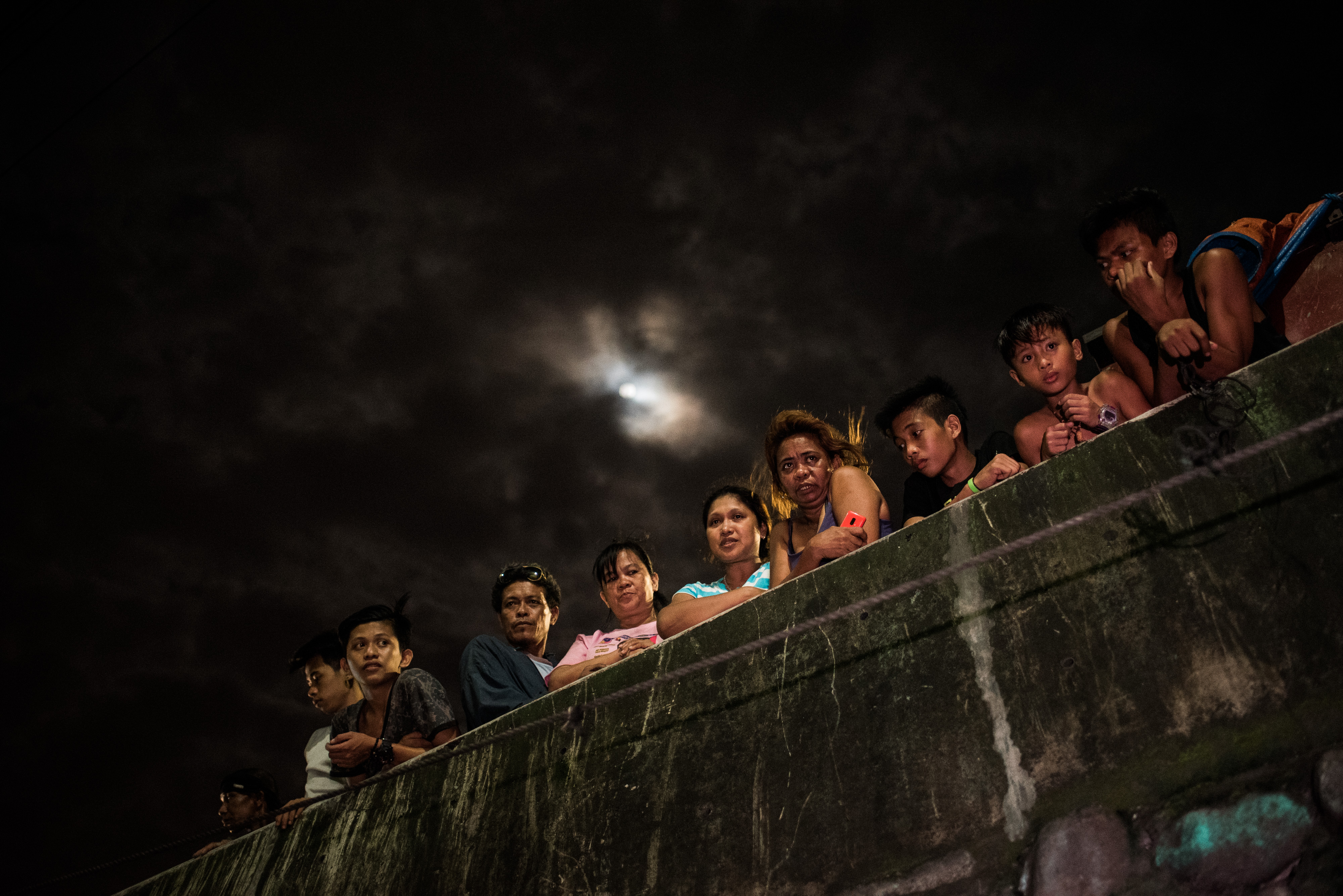
Around 7am, just hours after the killing, Jocelyn’s aunt went to pick up Marcelo’s body from the morgue. She arranged for her father’s body to be brought back to their home, where they would hold a wake. In the Philippines, especially in poor communities, wakes are often done on the street outside the home of the dead, because church services are costly.
While Jocelyn’s aunt was at the morgue negotiating the cost of claiming her father, a vehicle came to drop off yet another corpse that had been recovered a few hours earlier.
The body was covered by a white sheet, the feet sticking out from underneath. They were wrapped in packing tape. She asked to see the body. The crew pulled back the cloth. The corpse was wet. The victim’s eyes had been gouged out. Some of his teeth had been removed. His penis was exposed because his pants were unzipped. His nails were dark.
She saw him, and she instantly knew.
While at the morgue, Jocelyn’s aunt got a call from a family member. "We’re at the police headquarters. Only two of your brothers are here," she was told. "Joseph is missing."
Jocelyn’s aunt didn’t tell them she had found him.
When the funeral service arrived at their home later that day, there were two vehicles. The family was expecting Marcelo’s corpse. The crew brought the body down to crying relatives. Then, the crew brought down a second body. It became hauntingly silent. Only then did the family realize that they had lost Joseph, Jocelyn’s father, too.
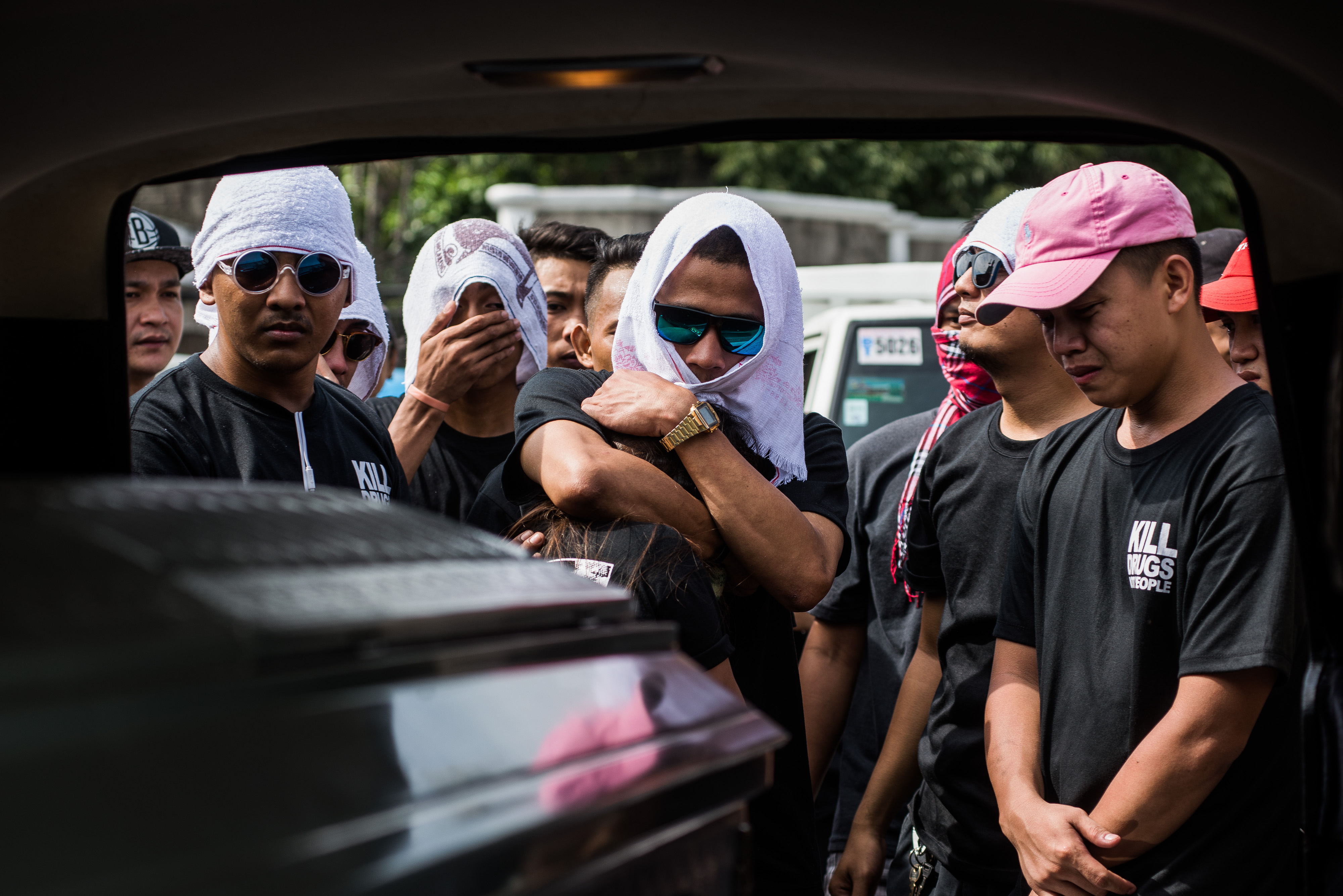
The official police report on Marcelo’s death describes it as a police encounter. The police report on Joseph merely says: "Male found. Dead body."
To this day, the family still doesn’t know what exactly happened to Joseph. Perhaps the cops punished him for making a scene out on the street when his father was shot. Perhaps he was uncontrollable on the motorcycle. Perhaps they simply got annoyed by him. "He didn’t take drugs. He didn’t have a single vice," Jocelyn’s aunt says.
All they know for sure is that in the coming months of the drug war, in addition to the police shootings, a slew of vigilante killings followed. Similar corpses were found across the city; their heads bound in packing tape, just like Joseph’s feet, and they too had torture marks on their bodies. The corpses were left with cardboard signs: "I’m a drug pusher. Do not emulate."
As for Jocelyn, an only child estranged from her mother, all she knows for sure, and all that matters, is that she saw her grandfather murdered the very same day her father was also killed.
THE DUTERTE DRUG WAR
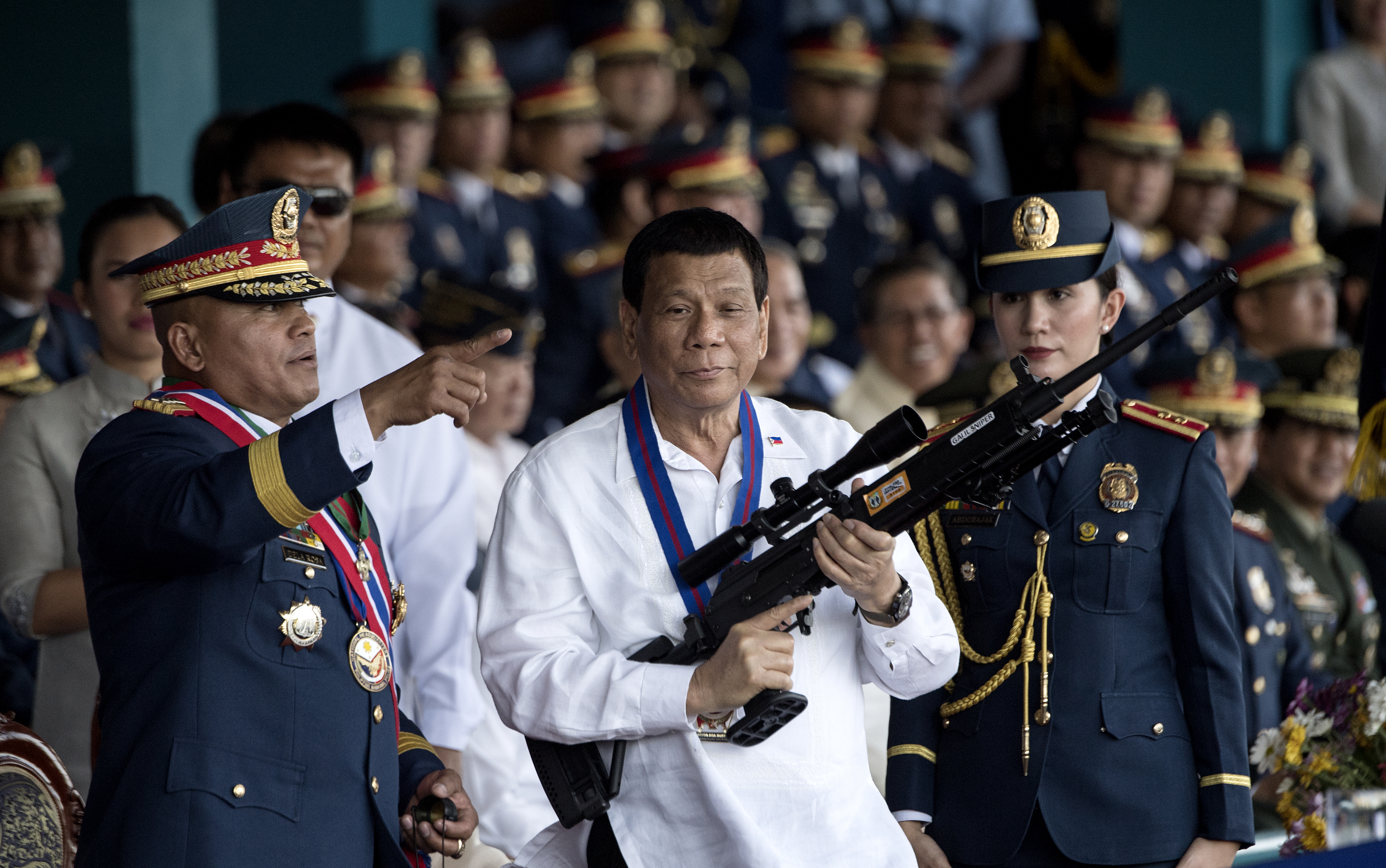
In May 2016, former Davao City mayor Rodrigo Duterte won the presidency, voted into power by disenfranchised Filipinos who were fed up with the political elite. He was elected on the platform of suppressing crime and eradicating drugs, largely due to his success in reinstating law and order in Davao, a city in Southern Philippines previously fraught with violence and communist insurgencies.
On the presidential campaign trail, Duterte vowed to replicate what he had accomplished in Davao, on the national level. "If I make it to the Presidential Palace, I will do just what I did as mayor. All of you who are into drugs, you sons of bitches, I will really kill you," he said a month before the polls.
He has kept that promise. As soon as he came into power, Duterte declared a war on drugs and has repeatedly encouraged police to kill drug-related criminals. It’s a policy that has gained the support of the likes of US President Donald Trump, who told Duterte he was doing a "great job."
Soon, dead bodies started piling up by the thousands.
A long-awaited United Nations report released this month – based on nearly 900 written submissions, police files, court documents, photos and videos, interviews with victims and witnesses, and input from the government – echoed countless news articles and other probes by human rights groups over the last four years. The UN investigation documented widespread human rights violations under Duterte’s administration, particularly the "systematic killing of thousands of alleged drug suspects." A separate investigation by Amnesty International details how the police force has "systematically targeted mostly poor and defenseless people across the country" and called the war on drugs "a war on the poor."
The government denies that there is a policy to kill people who use drugs, and argue that all deaths occur during legitimate police operations. Yet both reports cited routine warrantless police raids of private households, and falsified police reports. The patterns suggest unarmed victims and persistent planting of evidence in crime scenes, casting serious doubt on the police’s consistent self-defense narrative.
No one knows exactly how many have died since the start of the drug war. Official government figures claim that there have been 8,663 drug war-related killings since the crackdown started in July 2016, but independent estimates reach up to triple that number or about 27,000 people. Of that number, the UN report says 73 are children – including a five-month old – and 11 are women, although the count is not exhaustive.
Apart from deaths under the police’s watch, there are also 29,000 others labelled "deaths under inquiry" – like Joseph’s death. The Philippine Supreme Court has demanded an explanation for the average of nearly 40 deaths per day from July 2016 to November 2017, and has raised the possibility that these vigilante killings were state-sponsored, and in collusion with police. Police claim that only 9.4 percent of those deaths were drug-related, but a previous study found that police under-report these cases.
Perhaps the most disturbing of all is the "deep-seated impunity" emphasized by the UN report. Witnesses and relatives – mostly women – were scared for their safety, and felt powerless to pursue justice.
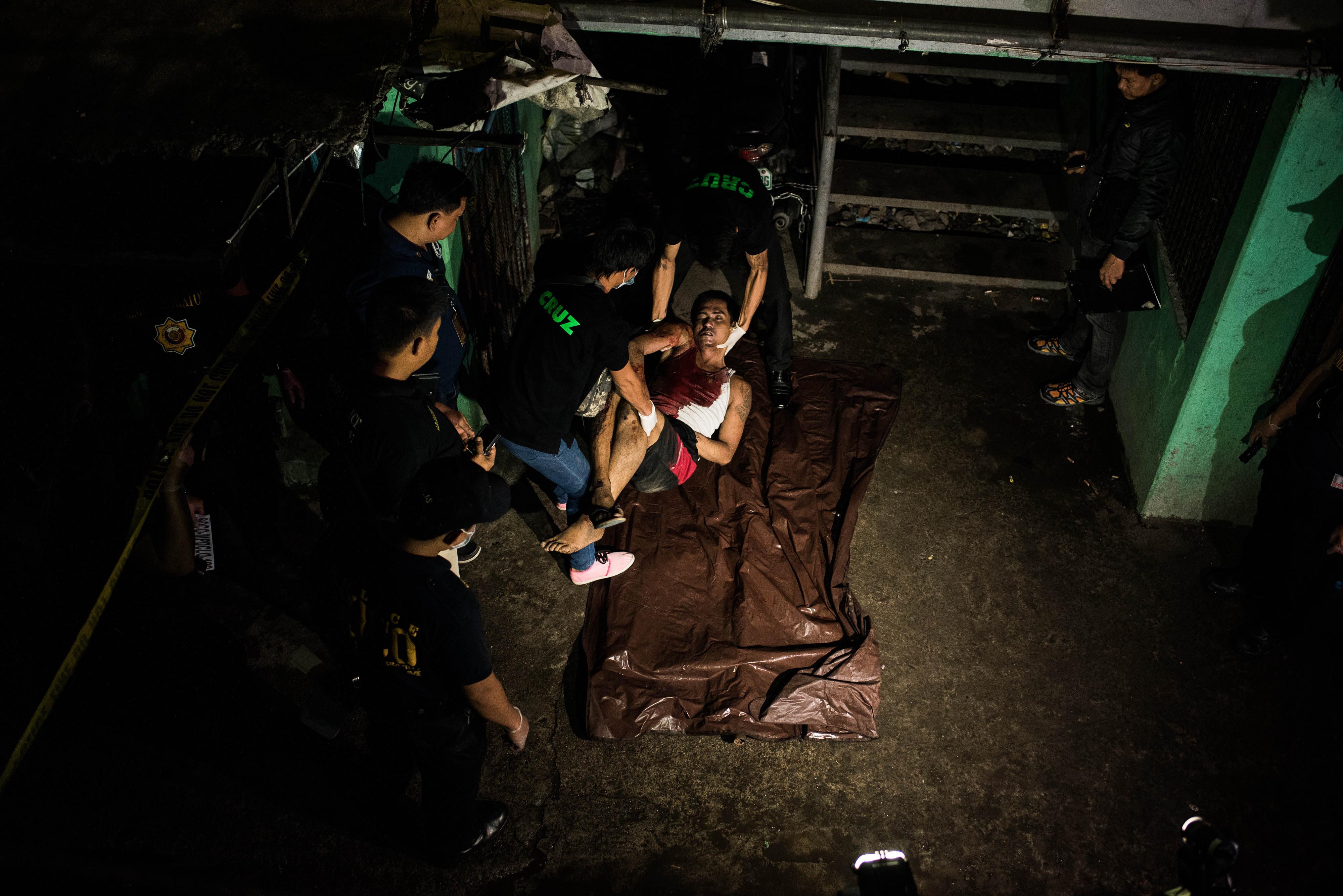
While the drug war has been ongoing for four years, there’s been little said about these women and their experiences.
"When I listen to their stories, I realize: this is hell on earth," Father Flavie Villanueva, who started a Church program to help women and children widowed and orphaned by the drug war, told VICE News.
"The Marcos era left us with deep wounds and scars but this is far worse in comparison," he said, referring to the dictatorship of former president Ferdinand Marcos. "This is systematic, legitimate lawfare being done in front of our eyes, 24/7.”
Father Villanueva said his psycho-spiritual intervention program Paghilom has aided close to 150 women, and about 60 children and teenagers orphaned by the drug war, but that number "has not even scratched the surface."
"You have a good chunk of people going through the next generation with these scars," he said. "99% of those killed are breadwinners. Multiply each death by five, because each family will have at least three to five younger children, siblings or nephews they’re caring for."
VICE News spoke to women about the drug war as seen through their eyes, describing the moment they learned of their loved ones’ deaths, and how their lives have been upended by their respective tragedies. Their accounts paint a disturbing picture of collective trauma, and the long-term impact of extrajudicial killings under the Duterte administration.
MURDER IN BROAD DAYLIGHT
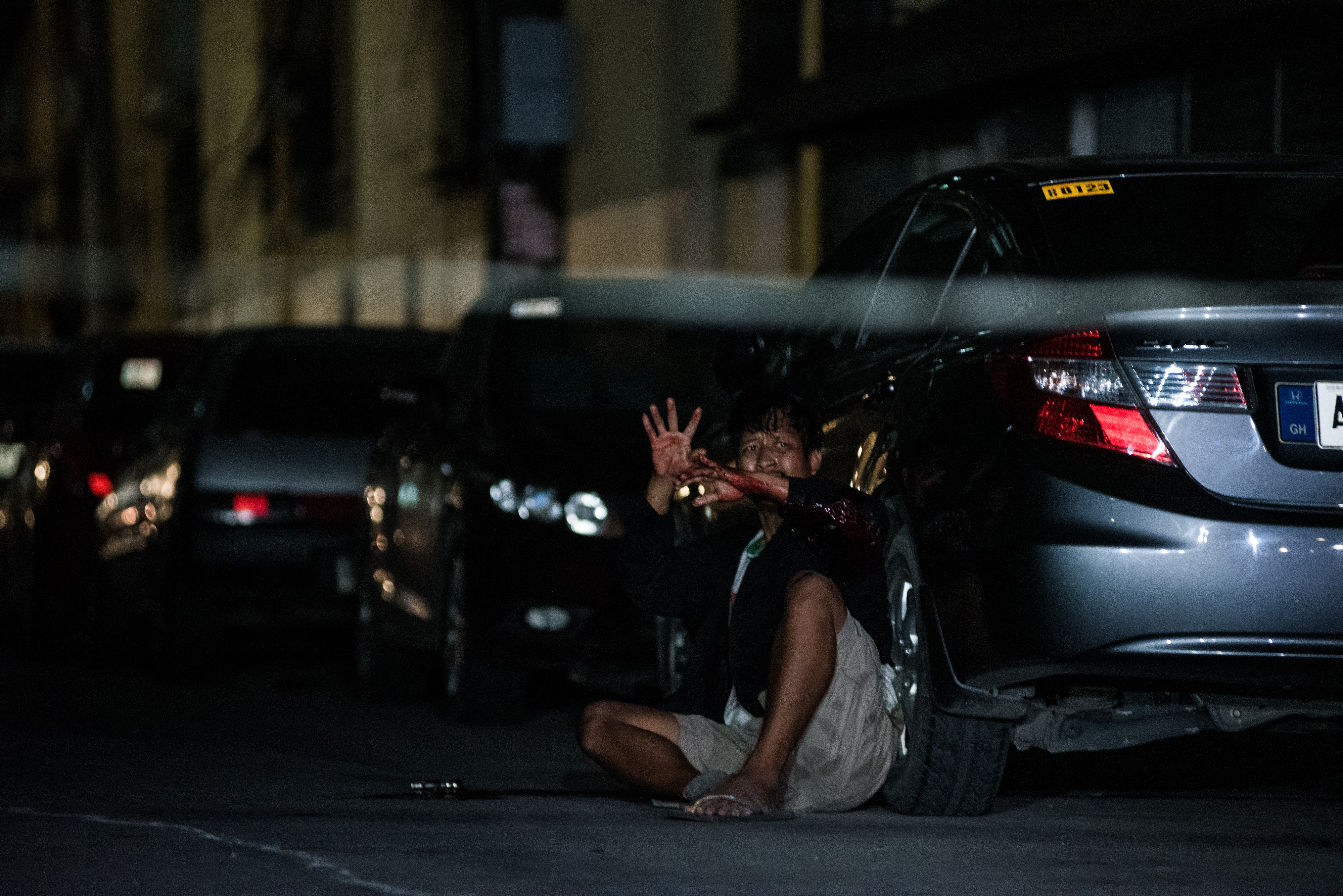
Marilyn Malimban remembers exactly what her partner was doing on the morning of his death. Jessie Cule was looking at Facebook photos of his family.
That was a Sunday. Marilyn, 45, headed out for work and bid Jessie, 37, goodbye, but he lay still with his back to her on their bed without a word, engrossed in family photos. The couple lived together in a small shanty in Payatas, a large slum in the Philippine capital.
Marilyn and Jessie had been together for about nine years. They first met in 2007, via a text message. After a month of flirtatious exchanges, Marilyn agreed to meet with Jessie in a nearby mall; at the time, he worked as a caretaker in a junk shop. She saw him from a distance and was bitterly disappointed. She had done her best to look presentable, putting on make-up and her best clothes. Jessie, on the other hand, showed up in rubber flip-flops.
But Jessie was generous, and kind, and he invited her to live with him. Three months after they met, they moved in together. Their life was simple, but happy.
After Duterte won, Jessie got nervous about the mounting deaths reported on the news. A few years prior, when he worked as a rickshaw driver, he used methamemphine, locally known as shabu. It gave him energy to keep driving through the late hours, which allowed him to earn extra income, he told Marilyn. She begged him to stop, and he eventually did. He took up a new job as a garbage collector. "He changed," she recalls. "Whenever I came home, he was there. Food was laid out for me."
A few months before he died, Jessie walked over to Marilyn and showed her a news clip on his phone, about the drug war’s latest victim. "Babe, look at this. He was sleeping when he was shot," he told her. Soon, reports that even former drug users were being gunned down filled the headlines. Jessie asked Marilyn if they could leave Payatas. They agreed that Jessie would return to his hometown in December, where his family lived, and that Marilyn would follow. But Jessie never made it home. He was murdered in August.
On the Sunday he died, Jessie had planned to buy a bag of rice for Marilyn and himself. He had time to kill until she’d be home, so he walked over to his friend’s shanty at around 2pm to play pool with four buddies. The shanty was on the foot of a hill, by a ravine. It was made of a patchwork of plywood, plastic, and other light materials.
It was 3pm when they came: five armed men in civilian clothes. One of them carried a wicker basket with a rooster inside. Some of the other men had guns. They barged in and pointed their guns at Jessie and his friends. "Don’t move!" they yelled. Jessie and his friends froze and held up their hands in surrender.
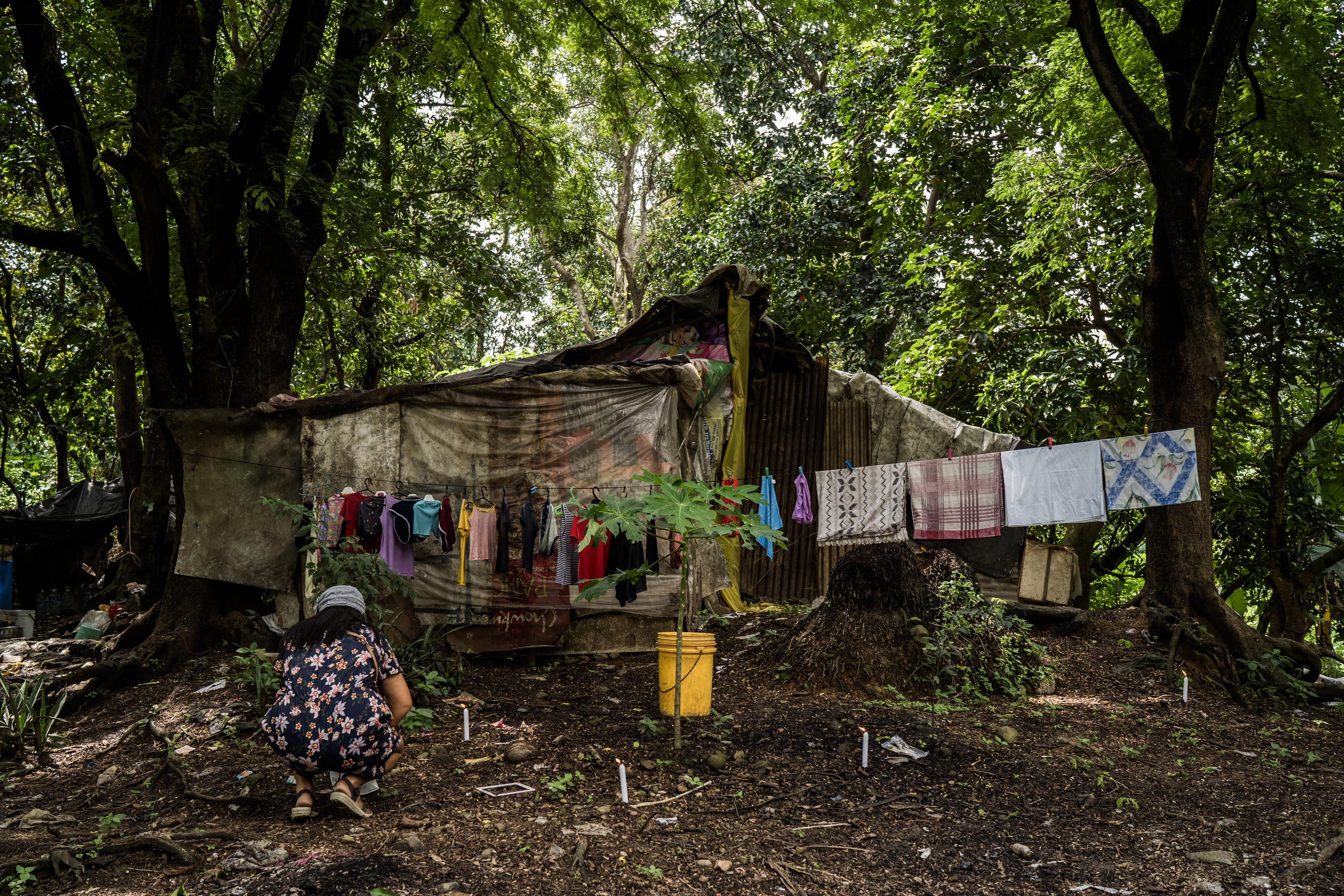
The armed men handcuffed Jessie and his friends, frisked their bodies, then made them sit on a bench. They found nothing. They raided the shanty and took phones, jewelry, and electronics. When they emerged from the house, they brandished an unfamiliar piece of silver foil and a lighter. Jessie and his friends denied owning the objects. "Liars!” the men said, repeatedly accusing Jessie’s friends of using drugs.
Annoyed at their consistent denials, the armed men brought Jessie and two of his friends to the back of the shanty. His other two friends were brought inside. Gunshots rang from inside the shanty, then the sound of bodies falling to the ground.
Outside, Jessie and his friends knew they were next. They were forced to get down on their knees. Jessie watched as the armed men shot his two companions who were kneeling next to him. One first, then the other. Jessie was the last one.
Jesse cried and begged for his life. He hugged the legs of one of the armed men and begged to be spared. He sobbed, pleading repeatedly, refusing to let go.
The autopsy showed Jessie was shot three times. It read:
More chilling are the particular wounds sustained by… Jessie Cule; [they] not only prove that murder was committed, these also show that the victims were killed execution-style.
He was shot on the right deltoid directly downwards, making an exit wound at his lower spinal area. Again, this shows that he was shot point blank in the right shoulder while he was kneeling down.
As Jessie knelt lifeless, his chest to the ground, Marilyn got a call on her cellphone at work. It was her landlord. "There’s been an emergency," the landlord said, "You have to come home.”
When Marilyn got to the crime scene around 4pm, a crowd had formed, and the police had cordoned off the area. They wouldn’t let her identify the body. When SOCO came, they retrieved the corpses one by one. There were five victims, but only four bodies.
One had managed to escape.
One of the men Jessie was playing pool with, a fruit and vegetable vendor by the name of Efren Morillo, faked his death when he and his friend were shot inside the shanty. When the cops went outside to kill Jessie and their two other companions, Efren managed to escape.
It is through Efren that Marilyn knows of Jessie’s final moments.
Efren has since filed a case against the cops. The 29-year-old’s complaint-affidavit reveals riveting details of what happened on the afternoon of August 21, 2016.
Outside, I heard many gunshots fired. I heard many voices raised – some angry, some crying pitifully. I heard someone say: “Away with them and just say they fought back. Plant the evidence.”
While the armed men were outside, I mustered the courage to move. I crawled out of the room towards a ravine that was only three meters away. I pressed my hand on my chest wound and rolled down the ravine. I landed on the side of the creek at the bottom of the ravine.
I prayed to live in order that I may see my little children grow up and that I may seek justice for [my companions] who were murdered.
The document also says it wasn’t until around midnight when he finally received proper medical treatment, about nine hours after being shot. He was in the hospital for 10 days, where cops tracked him down and filed a case against him.
According to the policemen, I allegedly resisted arrest and fought back during a [drug] operation. They also allege that I was the only one who survived the gunfight between me and my companions, and the policemen. The policemen even gave interviews that said that we were caught in the act of using drugs, and that we were notorious drug suspects and even hold-uppers.
Efren filed criminal charges with the Office of the Ombudsman against four cops and their accomplices for his attempted murder, the murder of his companions, robbery, and the planting of drugs and firearms. When Marilyn heard his account of what happened to Jessie, she joined him in his lawsuit as well.
The murder of Jessie and his companions became the first legal challenge to Duterte’s drug war. In a separate petition, Efren, Marilyn, and the other victims’ families asked the Supreme Court on January 26, 2017 to suspend the government’s controversial drug operations. On January 30, Duterte announced its suspension and ordered that all anti-drug operations be transferred from the police to the Philippine Drug Enforcement Agency (PDEA), which resulted in a drop in deaths. But by February 28, just four weeks later, Duterte re-allowed the participation of police in the drug war.
Every forensic finding and autopsy report by independent examiners support Efren’s affidavit. This has given Marilyn the resolve to keep fighting for Jessie. "If Jessie [had] fought back, I wouldn’t have filed a case. But he didn’t," she says. "That’s why I’m fighting for him even if it will take a long time. Because what they say about him isn’t true."
It’s the execution-style killing that hurts Marilyn the most. The image of Jessie on his knees, in his singlet and black shorts, terrified and crying, is etched in her mind. If they were going to kill him anyway, she wishes they had just shot him instantly, rather than let him beg for his life.
"I’ve seen a photo from SOCO of him turned over. That’s what gave me strength," she says. "When I first saw the photo, I kept crying. But I forced myself to keep looking at it so I could keep fighting."
"You know, his eyes were still open." She is haunted by one other detail. "There were tears on his face.”
THOUSANDS OF DEATHS, ONE CONVICTION
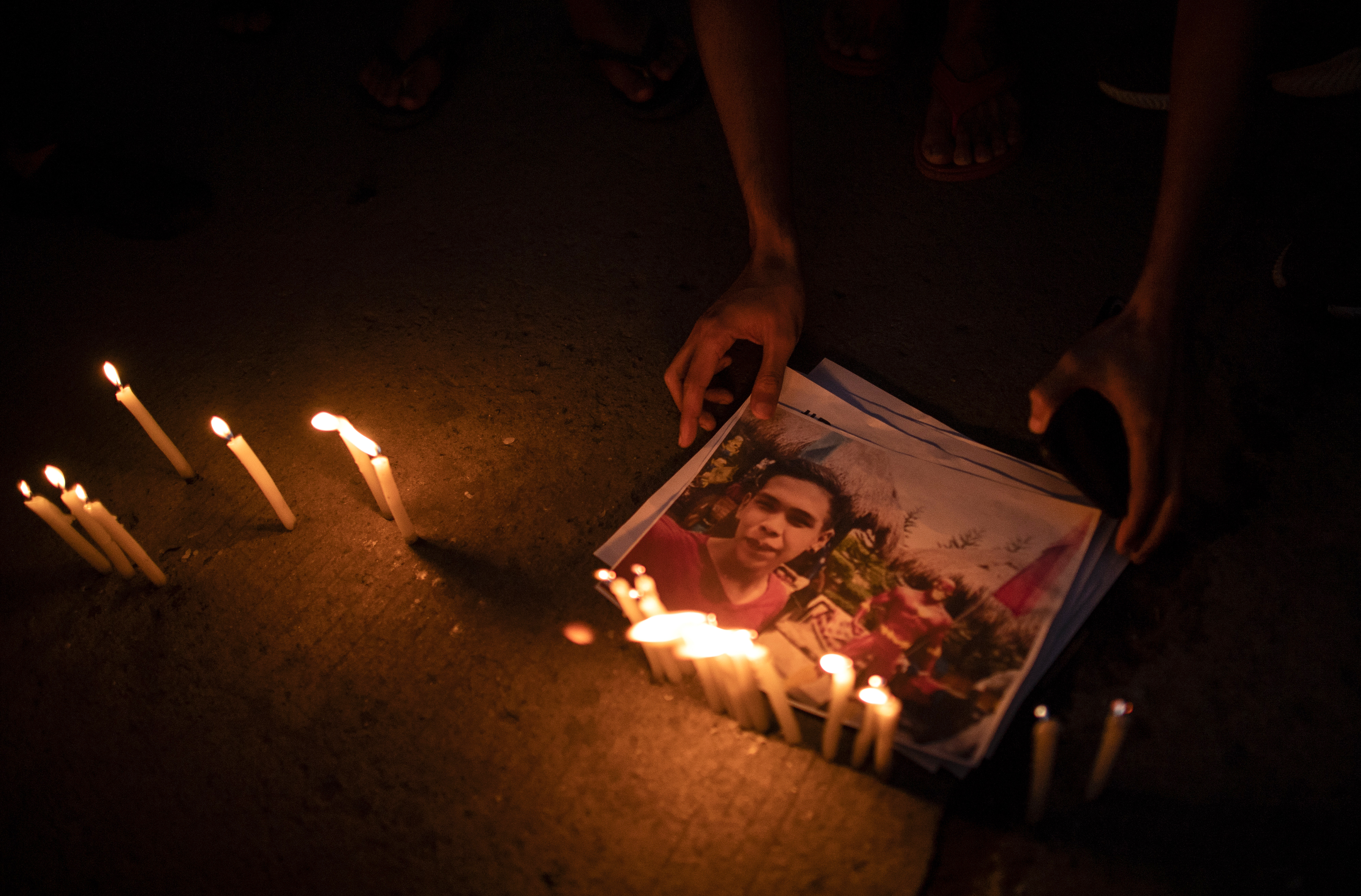
Even with an eyewitness and compelling evidence, the odds are stacked against Marilyn. In the four years that the drug war has been ongoing, and even with thousands dead, there has only been one case that has seen a conviction: that of 17-year-old Kian Delos Santos’ murder.
The Philippine public knows the story of Kian’s death in detail. It was the first to trigger widespread national condemnation and protests against the war on drugs.
It was the week of Kian’s exams. He had told his killers as much, begging them right before he was shot: "Please stop. I have exams tomorrow."
Kian’s case was reported as an official police operation. The police report said it was a "shooting encounter," and that the cops had shot and killed Kian in self-defense:
Personnel of PCP-7 Drug Enforcement Unit led by PO3 Arnel Oares and 10 others were conducting One Time Big Time Operation threat, when the above named suspect noticed the presence of approaching police officers…
Suspect drew his firearm and directly shot toward the lawmen but missed prompting PO3 Oares to return fire in order to prevent and repel the latter’s unlawful aggression as their lives were in imminent danger thereby hitting the same suspect on his body that resulted in his instantaneous death.
The report also said cops recovered four fired cartridge cases, a .45 caliber, and two sachets of methamphetamine in his possession.
But eye witnesses and CCTV footage told a drastically different story.
According to CCTV footage, before turning in for bed around 8:45pm, Kian had been hanging out on the streets near his home on the evening of August 16, 2017, when two men in civilian clothing grabbed him. They dragged him through a basketball court in plain sight, through dark alleys and winding streets, until they reached a dead end. Kian tried to fight back, but they blindfolded him. He cried and begged for his life.
His corpse was found in a fetal position, wearing pajamas – a blue shirt and printed boxers. He died of three gunshots: one in his back, two in his head. The autopsy revealed that he was face-down on the ground when the first two shots were fired. He was shot a third time – the bullet entering his left ear and exiting the right side of his head.
He also had a pistol in his left hand. Kian was right-handed.
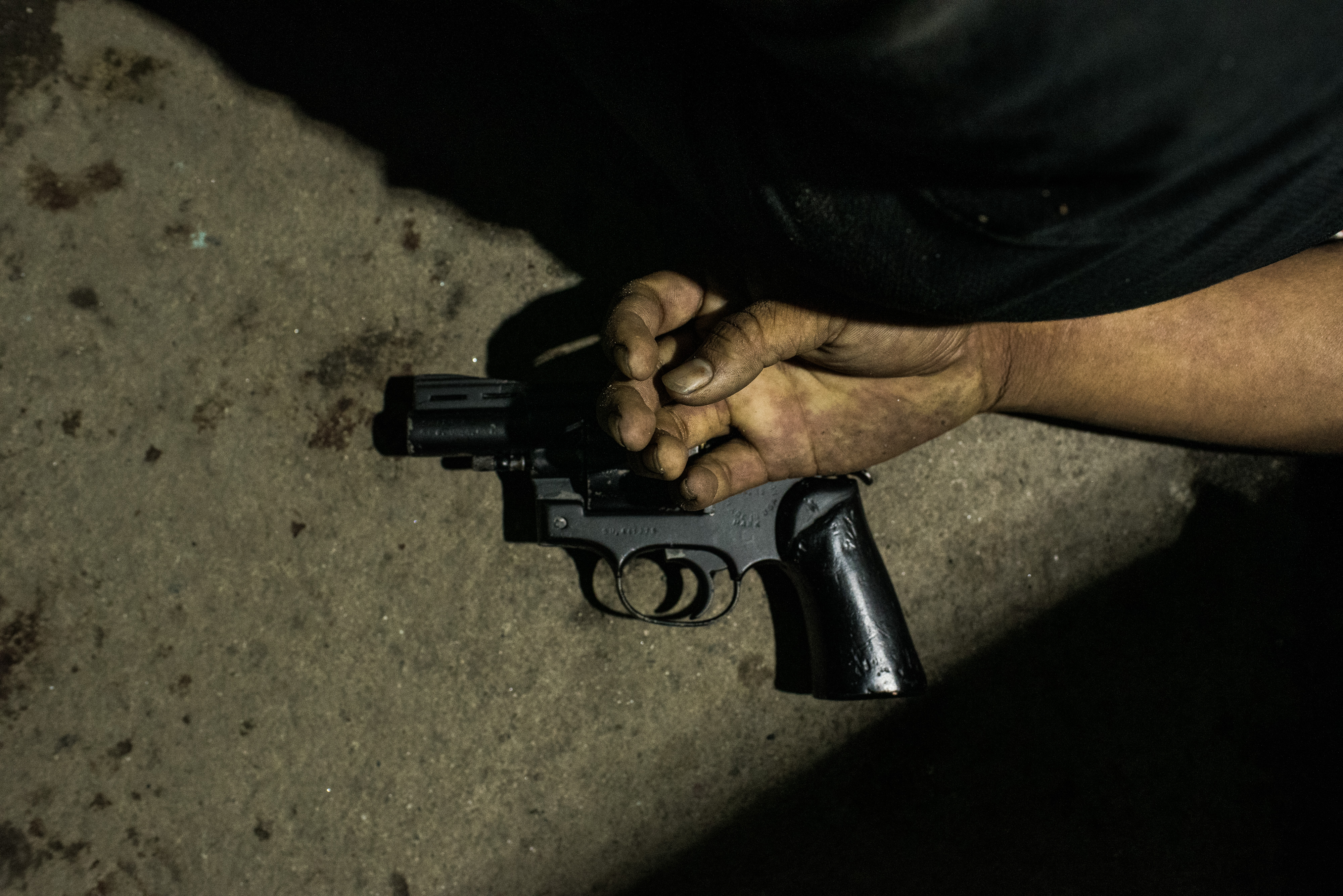
His older sister, Krizzhia Delos Santos-Rosero, recalls getting the phone call: “I lost my mind.”
Kian was all of 17 – a teenager who loved rap music and dreamt of entering rap battles. He memorised songs word for word, and would recite them loudly and incessantly, right into his irritated sister’s ear. He loved to eat. He didn’t care much about fancy food, he was happy with street food: siomai (pork dumplings), kwek kwek (fried quail eggs), fried fish balls.
This is what Krizzhia tries to remember about her beloved brother; the things he adored, his habits, mannerisms, his voice. But it’s difficult. Because when she thinks about him, the image that comes to mind is a scared, cowering version of Kian.
"I know the trauma and fear he experienced. He hates the dark. But they took him to a dark area. He won’t even go to a room alone if the lights are off,” her voice trails off. "I imagine that moment, maybe he was cursing because it was dark. He probably wondered why they took him. Why they were doing this to him. That he had an exam."
She starts to cry. "I know he was terrified at that moment. When I remember him that way, I close my eyes and I blame myself for not having been there when he died. Why was I not there for him at that moment?”
This too is how the Philippines knows Kian Delos Santos: the teenager who was murdered by cops. Hundreds of sympathisers visited Kian’s wake. They wore shirts that read, "Justice for Kian." Lawyers offered their help pro-bono. People marched in the streets calling for an end to the drug war.
The protests helped somewhat. On November 29, 2018, a little over a year after Kian’s death, three policemen were sentenced to 20 to 40 years in prison without parole for his murder. The police officers – Arnel Oares, Jeremias Pereda, and Jerwin Cruz – were, however, acquitted from charges of planting evidence.
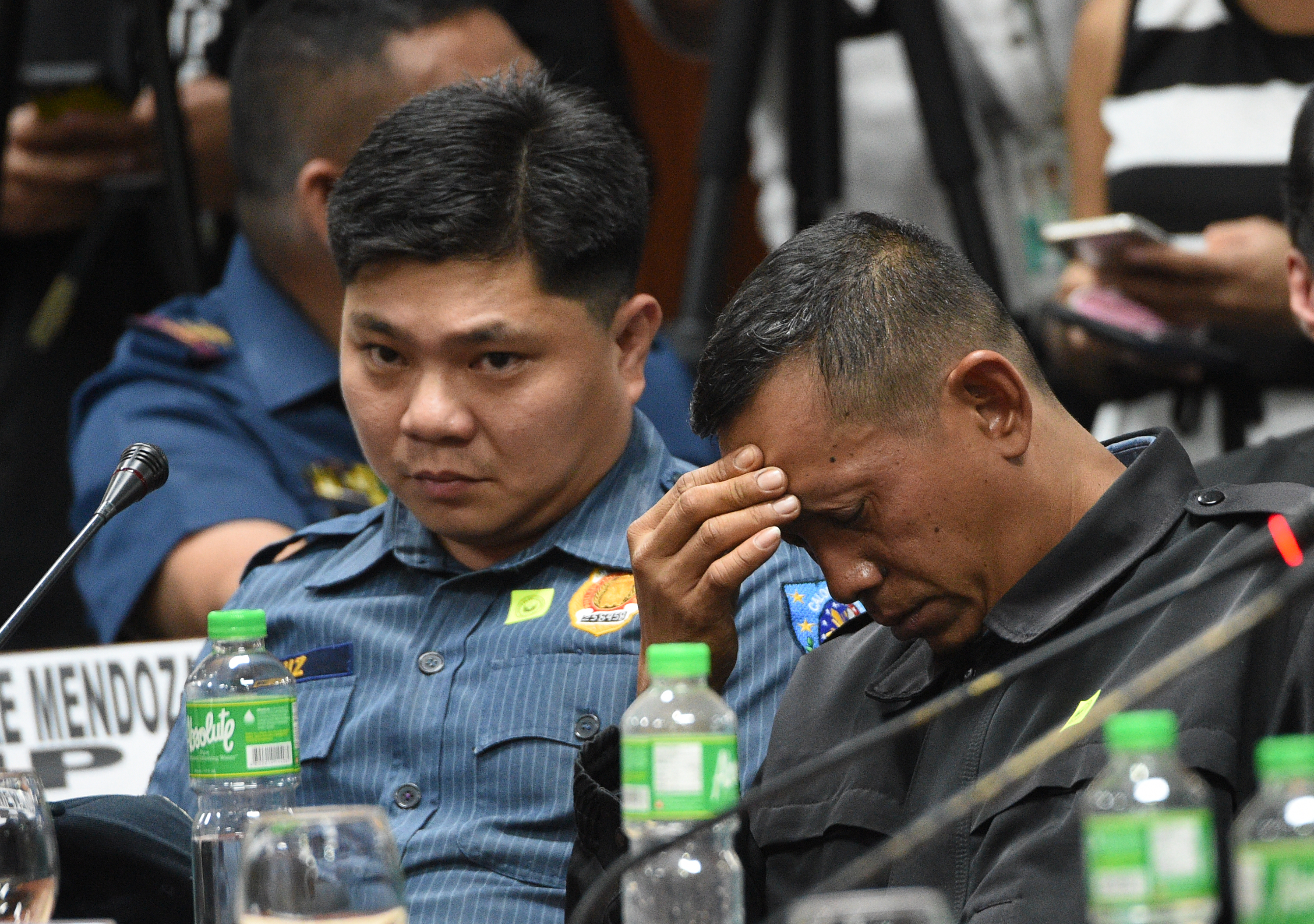
Their superiors, meanwhile, not only remain on active duty, but have also been promoted.
Krizzhia and her family believe what happened to Kian was a case of mistaken identity. "He never even tried drugs, I will forever insist on that," she says.
Aside from losing Kian, Krizzhia, in a way, lost other members of her family as well: their father Saldy and mother Lorenzana, who was working overseas as a domestic worker in Riyadh, Saudi Arabia when Kian died, now live in an undisclosed location, under the state’s witness protection program. She hasn’t seen them since 2017, only speaking to them by phone from time to time. Krizzhia, with two kids and a husband, opted out of the program in hopes of having a somewhat normal life.
Her parents’ freedom, and the only life Krizzhia had ever known, were the price they paid to find justice for Kian.
"He was really looking forward to graduating," she says. "He wanted to be a policeman."
BEYOND THE DRUG WAR
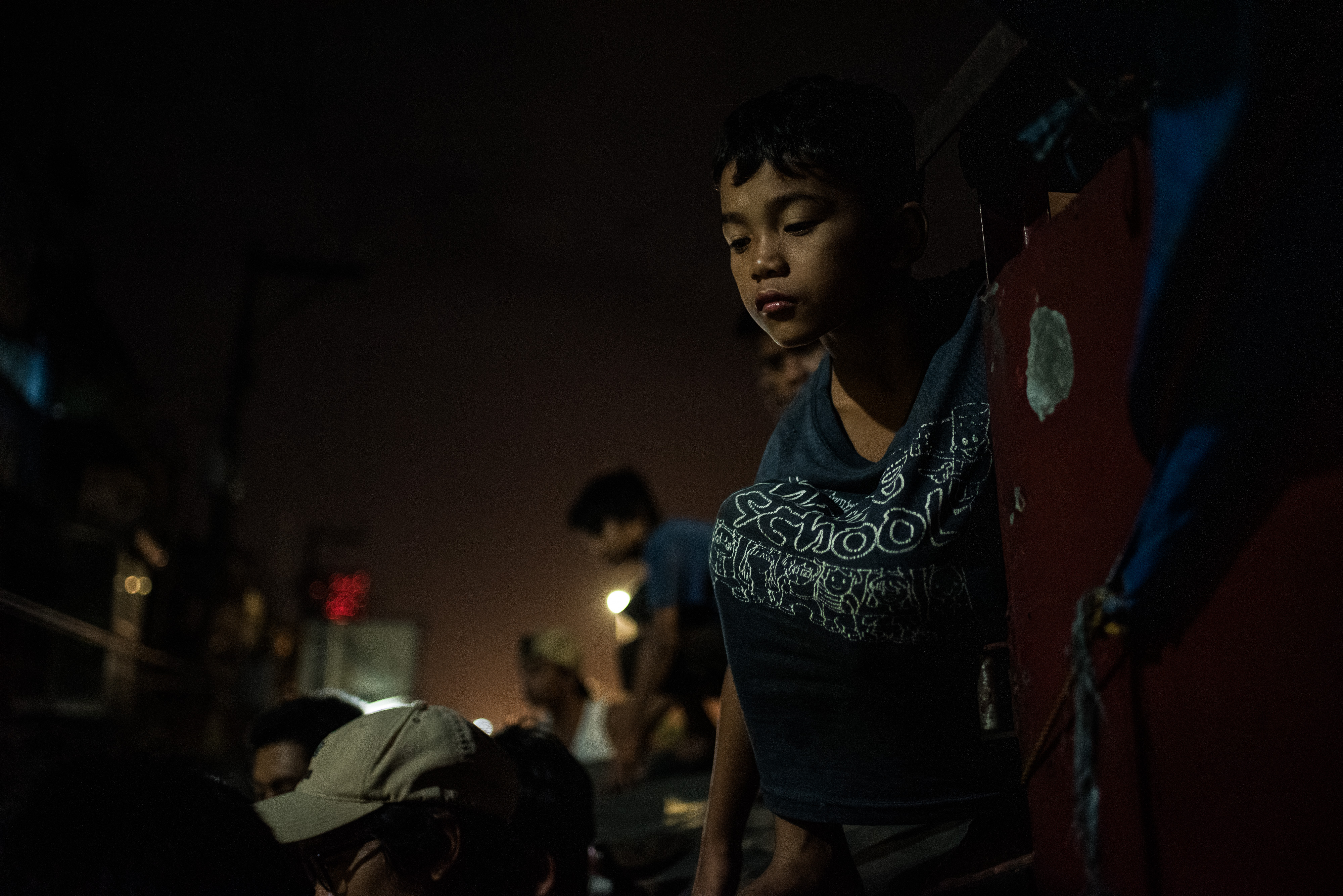
Duterte’s drug war is ongoing.
Global condemnation has not affected the vigor with which Duterte’s government has continued the killings. In response to the UN report, Presidential Spokesperson Harry Roque said the government “firmly reject these conclusions.”
"We maintain that the rule of law is upheld in the Philippines and any offenses committed by law enforcement or otherwise will be dealt with in accordance with due process," he said in a statement. He also pointed out that the Duterte government’s "commitment to the campaign against illegal drugs is buoyed… by the public’s continued support for the President, who won his office on the issue of illegal drugs."
On this latter point, Roque is right. Despite the mounting death toll, Duterte is empowered by widespread support and enjoys high popularity ratings. Survey results taken in December 2019 by pollster Social Weather Stations showed that 82% of Filipinos are satisfied with Duterte, a record high for his presidency. His term doesn’t end until 2022.
But the repercussions of the drug war will extend long after Duterte steps down and a new President takes over.
"The implications are vast," Dr. Nicole Curato, a sociologist and Associate Professor at the University of Canberra, told VICE News. "This corrodes trust in institutions like the police that are supposed to protect us. It also weakens the fabric of community life, where instead of neighbors providing mutual support to each other, they are now turned against each other to report suspected drug dealers," she added. "It's hard to repair these relationships."
Curato, who has conducted research focused on the Philippine drug war, said it will leave different legacies in women's lives. "Some choose to stay quiet and focus on rebuilding their own lives while others decide to speak up, tell their stories, and demand justice. Both impacts are burdensome for women. It requires so much emotional strength to grieve and process a traumatic experience – whether one stays quiet or speaks up," she said.
"But both impacts also demonstrate how women are able to assert their identities not as victims but as survivors. Reclaiming the narrative is crucial.”
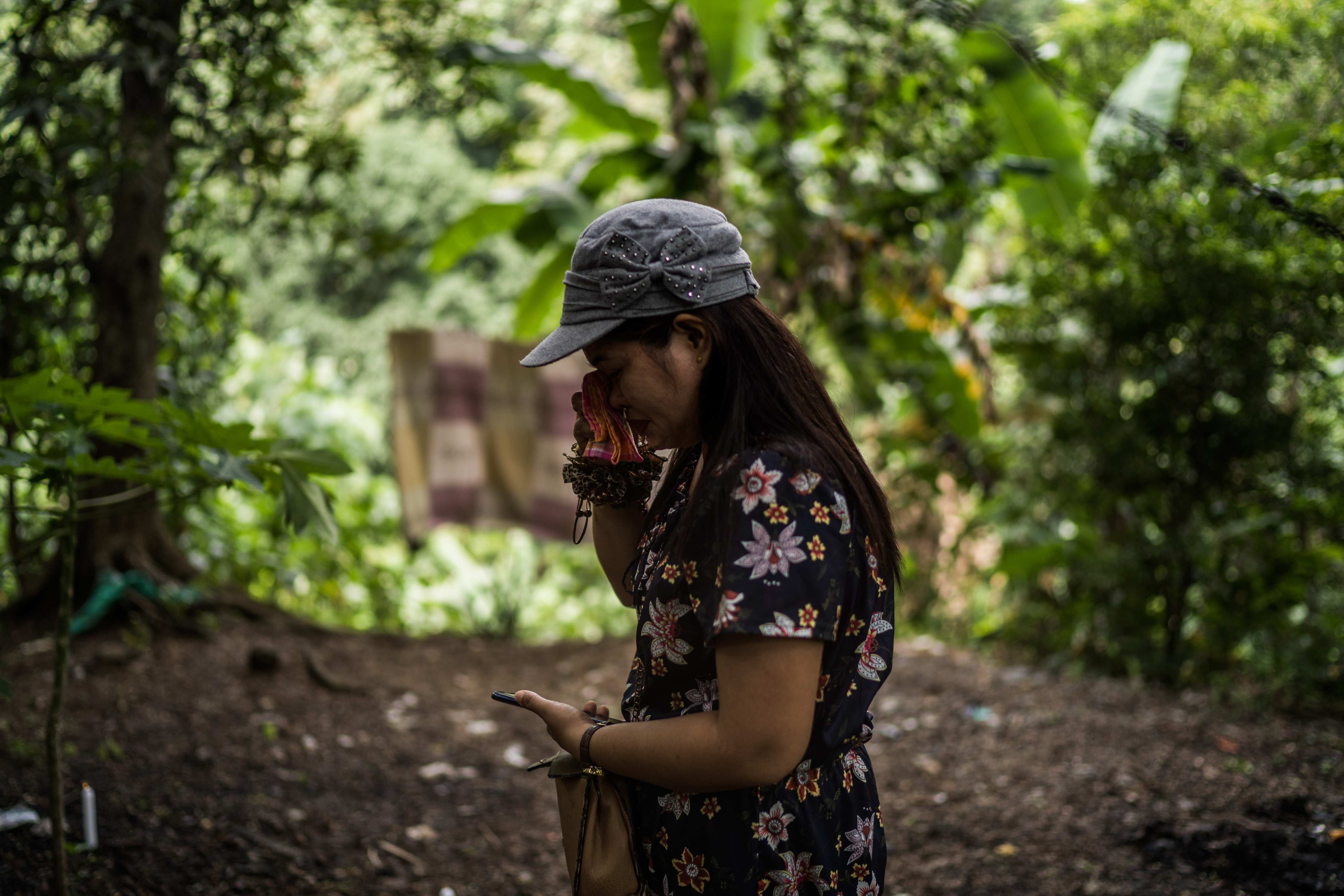
For children, the concern is even greater. "Each generation is defined by a critical historical moment. My worry is we are witnessing a generation of children who grew up in a society where murder and state-sponsored violence is the norm."
This is also why psychological interventions are just as important, said Curato, because families involved in killings often grieve alone. "Their neighbours don't want to be associated with them, while other family members try to stay away to avoid getting implicated. Interventions from the Church and volunteer groups are essential to these families' healing."
But there’s only so much that Church programs like Father Villanueva’s can do, especially with limited financial resources. The deaths intrinsically change the lives of the women and children, who are forced to navigate emotions of sadness, vengeance, anger, self-blame, and helplessness, while attempting to move forward.
Even for Krizzhia, whose family found widespread support after Kian’s death, the imprisonment of Kian’s killers doesn’t put an end to the pain. Constant rumours continue to haunt Krizzhia and her family around Kian’s involvement in drugs – rumours peddled by Duterte’s supporters online and on social media. The comments are harsh; they say Kian deserved to die, that the world is better without him, that the family must be drug runners too. "My family fell apart. We’re grieving. We lost one of our own. And then they blame us?,” Krizzhia says. “That’s just not fair."
Krizzhia has since shifted her studies to pursue social work, and says that after she experienced first-hand the impact of social workers in her life, "I really want to help." And while she says she has found some peace through her faith, there is one desire that never goes away.
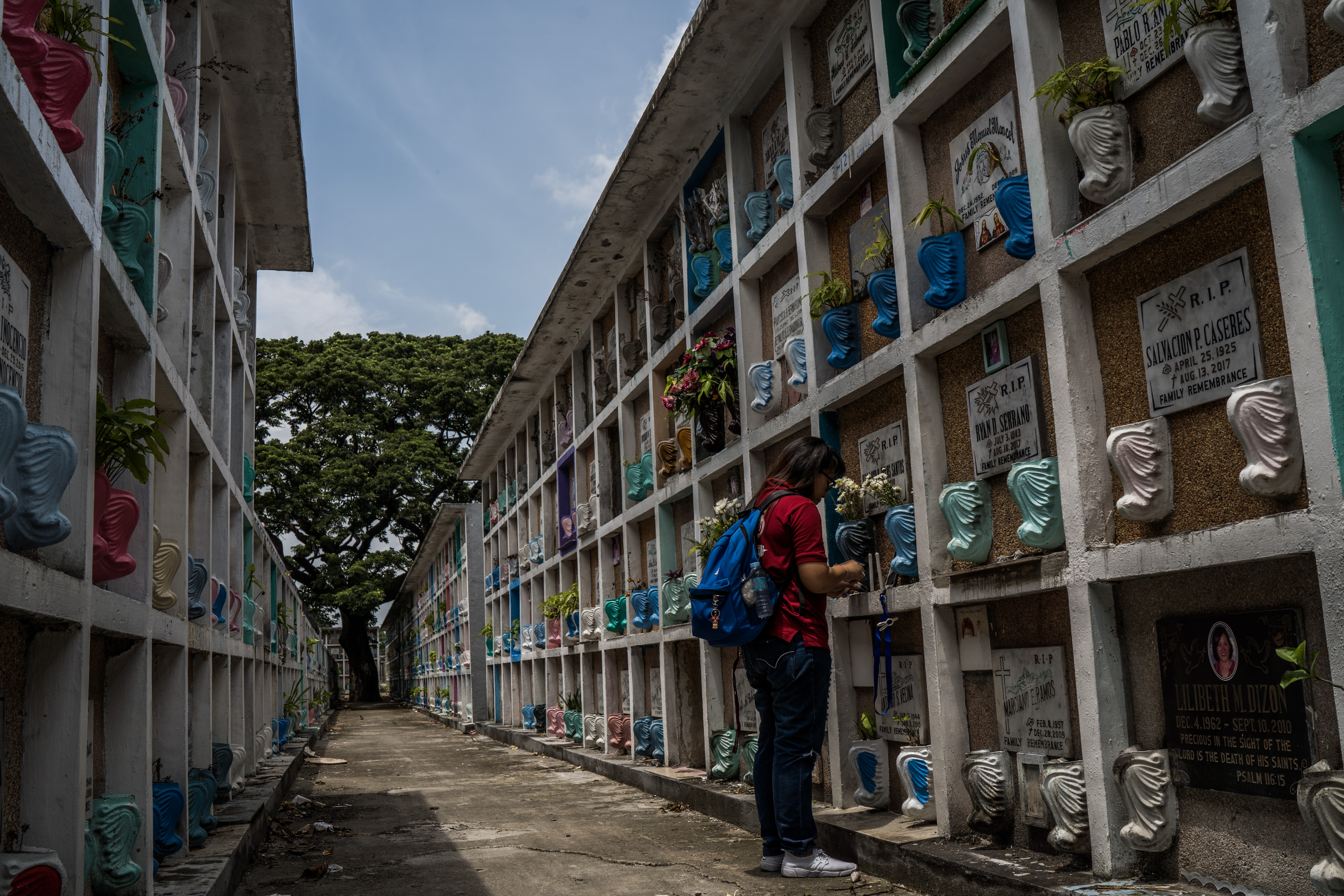
"My hope is to speak to the police to ask them why," Krizzhia says, referring to Kian’s killers. "What were you thinking that night? What did my brother say in his final moments? When he was begging for his life, did you not see the faces of your children? Your siblings? Did it not cross your mind that it could’ve been your child?” And, above all, "Why Kian?”
Marilyn’s entire purpose has changed too – her whole life now revolves around finding justice for Jessie. She has moved homes to live closer to the Office of the Ombudsman, so she can make sure to attend hearings any time she gets called in by the court, even though her last hearing was over two years ago. Since then, she has received no update on the progress of her case.
"I’ll wait for as long as I can," she says, determined to clear his name. "Jessie was a good person."
Marilyn says she would drop the case if the cops would admit they lied about what happened. She just wants them to stop saying their victims fought back, and to stop murdering people. "I feel for those who have been left behind,” she says. "Especially the children."
Children like Jocelyn.
Jocelyn is now 11 years old and in fifth grade. Before he died, her grandfather used to walk her to school every day. Her aunt takes care of her now; another mouth to feed, on top of three children.
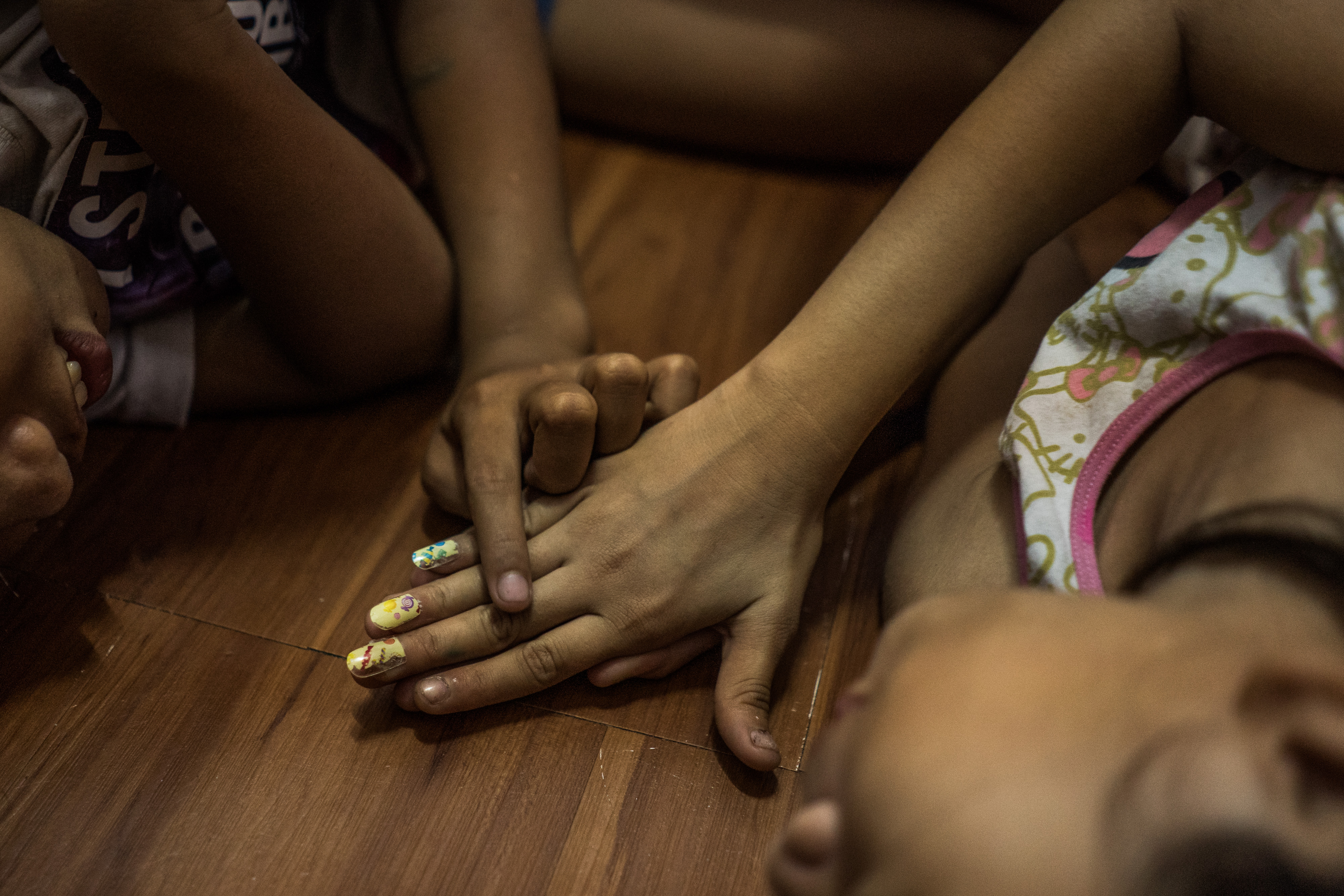
Jocelyn’s family has chosen not to file a case, seeing the harassment faced by other victims’ relatives who pursue charges, and the slow pace and high costs of trials in the Philippines. They are instead focused on putting food on the table, now that the family’s breadwinners are gone.
Jocelyn’s schooling is funded by a Church scholarship for orphans, but when she’s not in class, she helps her aunt make money. They go to protests and rallies where they sell coffee and pandan drinks. She also goes to rosary vigils, where she prays with other orphans for an end to the drug war. It’s a childhood no one deserves.
Jocelyn says she cries to herself when she thinks of her father. Her father, the only parent she ever knew, who took her out often, who bought her clothes and played games with her. Who liked going to the gym, and liked eating chicken adobo. She says he was serious, but good to her. And that she misses their motorcycle rides together. "I get sad when I see children with their dads," she says.
She wanted to be a police officer, but that has since changed. She wants to be a lawyer now, so she can help people.
Jocelyn says she’s still angry. She wants her grandfather and her father’s killers to go to jail. When asked if she has forgiven them, she shakes her head.
"There are bad cops out there. I have no faith in them anymore," she says, looking away. Tears brim in her eyes. "I want them to apologize for what they’ve done. But even then, they can’t bring back my father with a sorry."
Follow Natashya on Twitter. With reports from Martin San Diego.
from VICE https://ift.tt/37Zg0uP
via cheap web hosting
No comments:
Post a Comment